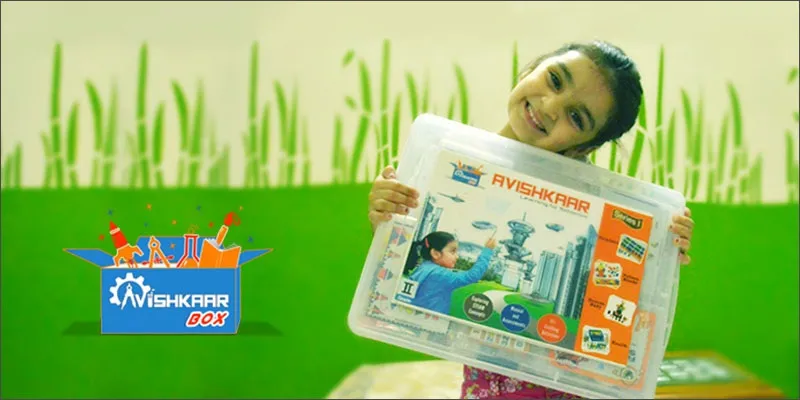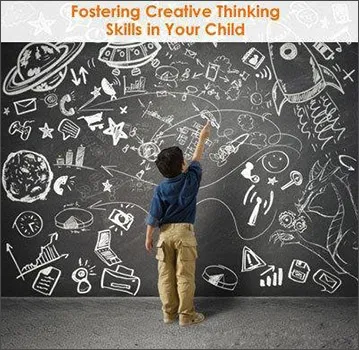Avishakaar Box sets to disrupt technology learning for school-goers with hardware kits
Imagine how difficult it was to grasp basic concepts of maths and science when we were just six-seven years old. However, children today are far ahead not just in terms of the academic curriculum but in understanding technology too. We were introduced to robotics in class six while now class two and three students are learning the nuances of robotics.
To make children understand tech and science concepts in an effective way, Delhi-based startup Avishkaar Box has developed two boxes - STEAM and INVENTORS.

STEAM is a science, technology, engineering, art and mathematics based educational kits for standard one and two. Inventors are very specific to a certain technology theme. “For instance, the current boxes that we offer are Robotics – CodiGO (world’s first physical programming interface that has been patented) and the robotronics series. These are for standard two to ten,” says Tarun Bhalla, Co-founder, Avishkaar Box.
Avishkaar Box is a bundle of monthly theme based educational kits for children. It aims to kick-start a culture of innovation in India by completely overhauling how we approach supplemental learning. “These kits provide practical exposure to the concepts that kids study in school. All the Boxes have been carefully mapped with the respective class curriculum,” adds Tarun.
These Boxes can be purchased as a standalone kit or as a year-long subscription where you would get a new box every month.
Founded by Tarun and Swati Gupta, the company has been able to sell 500 boxes of robotronics series in the last four months using both online and offline channels. Tarun is passionate about developing today's children

into the model citizens of the nation. Providing the right learning environment to his own daughter has given him the impetus to start Avishkaar Box. Swati Gupta has over 7 years of experience in the field of consulting, sales and marketing. Groomed in a management background, she has worked with a number of startups.Hardware used by startup
“Our Inventor boxes are all patented with the Indian patent office and the hardware used is proprietary in nature. “We work with a combination of ATMEL and ARM 9 Microcontrollers for all our Inventor boxes (each box has some sort of programmable electronics that lies at the centre of the product),” points out Swati. Interestingly, these different hardwares can be programmed by all sorts of interfaces (wirelessly by an actual physical interface – see one of its kind CodiGO, an Android phone Application and RoboG – a desktop software application). Importantly, all the ancillary hardwares – motors (80 and 100 RPM), sensors (Touch, IR, Sound and Temperature) are produced in-house.
Plan for scaling-up & challenges
“Since we are operating in a product domain, we just need to sell more units to achieve scale. The real question is do we have enough buyers in India for our kind of products and solutions? It all depends on how we position ourselves,” says Swati.
The duo faced tremendous challenges as they didn't have any academic background in the domains of curriculum design. “We have faced challenges in every sphere of running a typical hardware product company in India – right from product development, sourcing, vendor and team building,” adds Tarun.
Road Ahead
Avishkaar Box intends to become the country’s answer to Lego of the developing world – where products are affordable, accessible, curriculum based and customized as per the requirements of the developing world. “For instance, Lego sells products based on age/skill requirement, whereas we sell as Concept/Class requirement. Factors such as the choice of material used, and understanding the learning curve of children in India or other developing countries will enable us to win in this market,” says Swati.







